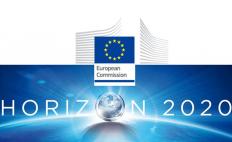Communities of Practice for Accelerating Gender Equality and Institutional Change in Research and Innovation across Europe - ACT
Principal Investigator at ZRC SAZU
Ana Hofman, PhD-
Original Title
Communities of Practice for Accelerating Gender Equality and Institutional Change in Research and Innovation across Europe - ACT
Project Team
Tanja Petrović, PhD, Assist. Prof. Jovana Mihajlović Trbovc, Ana Hofman, PhD-
Duration
1 May 2018–31 October 2021 -
Lead Partner
-
Project Leader
-
Financial Source
Horizon 2020

Partners
Haskoli Islands (Iceland), Uniwersytet Jagiellonski (Poland), Deutsches Elektronen-Synchroton (Germany), Centre National de la Recherche Scientifique (France), Centre de Regulació Genòmica (Spain), Umweltbundesamt (Germany), Science Foundation Ireland (Ireland), Karolinska Institutet (Sweden), Loughborough University (UK), Technische Universität Berlin (Germany), Facultad Latinoamericana de Ciencias Sociales (Argentina), Advance HE (formerly Equality Challenge Unit) (UK), Joanneum Research Forschungsgesellschaft MBH (Austria), NOTUS (Spain), Portia (UK)
ACT aim to advance knowledge and sharing on gender equality by promoting communities of practice as agents to develop gender equality actions at research organizations in the European Research Area, including integration of the gender dimension into research and education content. Considerable advances have been made in the European Union in the last decade in these areas, but the resulting experiences and practices are scattered widely, which prevents systematic and systemic action. ACT tackles this situation by developing a network of seven Communities of Practice. These networks with be supported with tailor-made mechanisms for new learning and practice, such as an online Hub for knowledge sharing; an adaptable and flexible evaluation framework for monitoring activities and gender equality plans; toolkits for the adoption of best practices; training materials and workshops in participatory methods for institutional change; synergy conferences (online and face-to-face) or thematic videos addressing shared needs. These measures will be designed to reflect institutional diversity as well as differences in national contexts. Thus, the project aims at addressing known gender inequalities in three fields: human resource management, decision-making processes, and R&I content including higher education curricula.
The expected impacts include:
- Improved transnational learning on gender equality knowledge and practices in R&I, ensuring that the research community is better equipped to prevent gender bias.
- Better understanding of how gender issues influence the quality of R&I processes and science knowledge-making.
- Enhanced standards for the assessment of institutional excellence that incorporate gender equality as a criterion of success.
- More systematic and systemic adoption of best tools and practices for the implementation of gender equality plans.